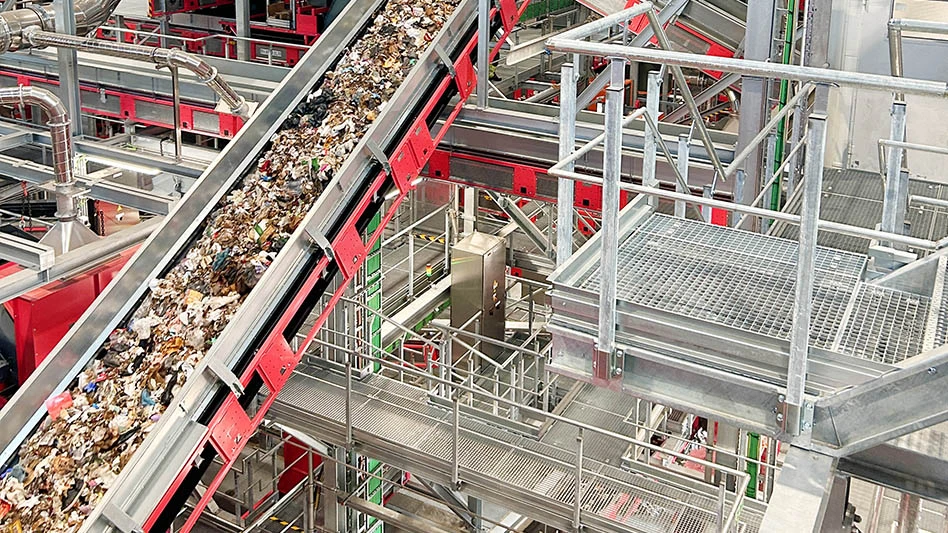
Kevin O’Sullivan
New York City Department of Sanitation director of technical assistance and training

With an eclectic background ranging from music to film to architecture to education, it’s no surprise that Kevin O’Sullivan, director of technical assistance and training for New York City’s Department of Sanitation (DSNY), is a lifelong learner.
In fact, his curiosity about the waste and recycling field is what got him involved in the industry. When a friend of his joined the department, O’Sullivan says he “peppered” him with questions about the field.
He says he found himself “oddly fascinated” by the operational logistics of waste collection, the shifts, the equipment and what it’s like to be a sanitation worker. Prior to joining the DSNY, O’Sullivan was a teacher with the New York City Department of Education. It was a logical transition for him to join DSNY as the manager of the school unit, acting as a liaison between the DSNY and the school system.
In his current role, O’Sullivan works closely with institutions, helping manage their waste.
Recently, the DSNY has been focused on organics diversion. O’Sullivan has helped lead that effort, working on the city’s Smart Bins program in which New Yorkers can dispose of food waste and other compostable, organic materials in bins around the city using a downloaded app. While the city is launching curbside compost collection, the Smart Bins program is expanding as the city adds 150 bins in Manhattan.
"I will say, in a lot of our heavily immigrant communities, a lot of folks have been doing this in other countries. A lot of immigrant folks know all about composting.”
Waste Today (WT): What are some of the unique challenges that you’ve had in setting up the Smart Bins program, and what lessons have you learned as you’ve gone along?
Kevin O’Sullivan (KO): In the smart composting program, we’ve realized that as many people that are aware of what composting is and what food waste is, I think there’s still a lot of folks that simply don’t know. … I will say, in a lot of our heavily immigrant communities, a lot of folks have been doing this in other countries. A lot of immigrant folks know all about composting. So, that’s been really interesting to talk to [those] folks.
As we are rolling out this program, we are not only explaining what the bin is and how to participate; we’re also explaining what composting is and why it’s important. … Right now, in New York City, we are facing a serious rat problem. Folks are beginning to realize the very practical benefits of separating your food waste. Because in New York City, as you may know, we’re putting out bags of putrescible waste on the curb that often sit out for a long time. And, that is really like a buffet for rats.
WT: On the institutional side of your position, what are some of the things you have been working on?
KO: Prior to the pandemic, we had been working to enroll every firehouse in curbside composting, and that was a great program. Unfortunately, that was paused during the pandemic [because of] some of the cuts. We are now gearing that back up.
The Queens curbside program is starting back up in a couple of weeks, and we are going to focus on getting those firehouses, specifically in Queens, back up and running. If you know anything about a firehouse, the firefighters cook their meals and prepare it sort of family style, more like an industrial kitchen. And, you know, we got great material from those firehouses. And it just makes a lot of sense. It’s kind of a low-hanging fruit.

Explore the March 2023 Issue
Check out more from this issue and find your next story to read.
Latest from Waste Today
- US Senate backs reduced cuts to EPA
- ELV Select Equipment, Reworld aid NYPD in secure firearm disposal
- Waste Connections announces Q2 results
- Returnity and Cosmoprof to address reusable bag waste
- SWANA releases report on aging WTE facilities
- New economic assessment reveals cost benefits of California’s SB 54
- Premier Truck Sales & Rental opens new facility
- TeknTrash Robotics, Sharp Group partner on humanoid robot pilot





